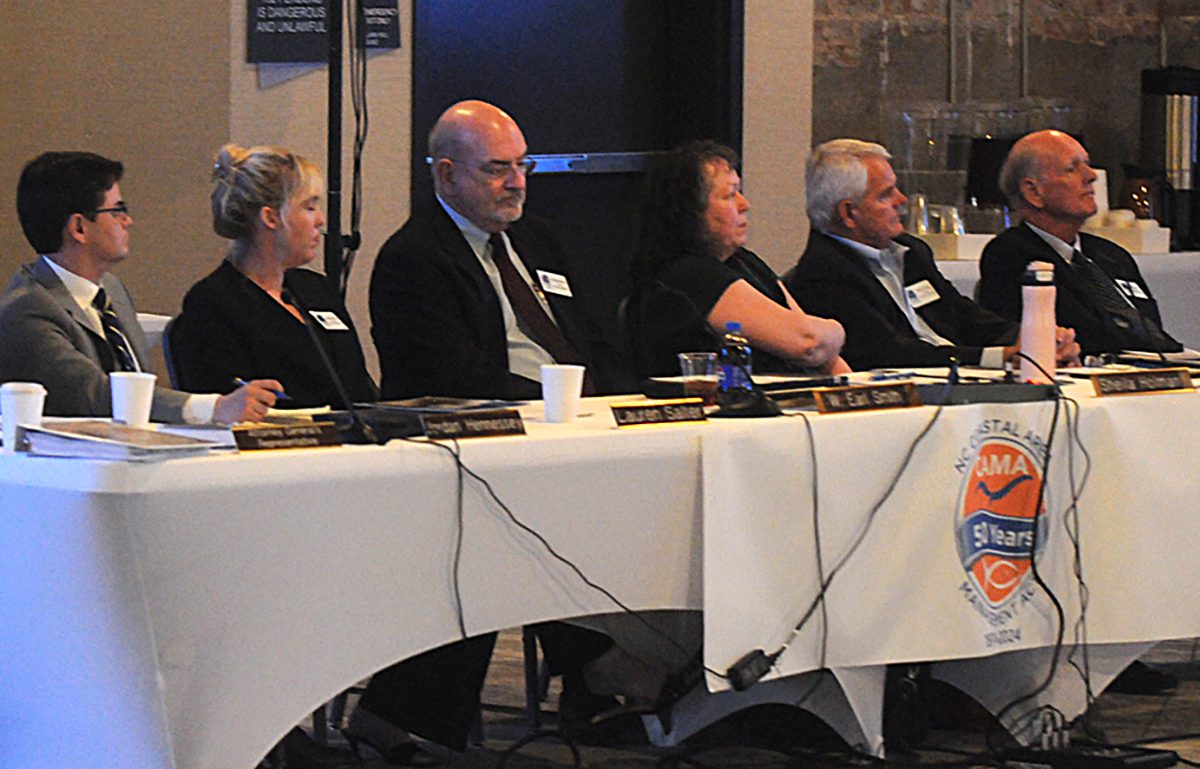
A 2023 law that shifted gubernatorial appointment powers of North Carolina’s environmental and coastal commissions does not violate the state constitution, a three-judge panel unanimously ruled.
The Wake County Superior Court judges late last week concluded that the state’s executive branch, including the governor, agriculture commissioner and insurance commissioner, holds a majority of appointments to the Environmental Management Commission, Coastal Resources Commission and Wildlife Resources Commission, as well as two other boards, under the new law.
Supporter Spotlight
“Our Constitution does not create a unitary executive,” the Wake County judges ruled. “The General Assembly’s power to organize and reorganize the executive branch and to prescribe the functions, powers, and duties of executive officials, including for members of the Council of State, encompasses authority to divide between the Governor and other constitutional executive officers the power to appoint members of statutory boards and commissions.”
But judges John Dunlow, Dawn Layton and Paul Holcombe III also ruled that a portion of the law gave legislators too much control over the Board of Transportation and the Economic Investment Committee.
Democratic Gov. Roy Cooper’s partial victory is being challenged by GOP House Speaker Tim Moore and Senate leader Phil Berger, whose attorneys filed a notice of appeal to the Court of Appeals on Friday, according to the Associated Press.
Cooper sued lawmakers last year two months after the Republican-led General Assembly passed the law last August. The law also restructures appointments to the Commission for Public Health and the Residential Code Council.
The Residential Code Council changes become effective Jan. 1, 2025. That council, which will consist of 13 members, will be tasked with reviewing and considering proposed revisions, amendments and appeals to the state residential code.
Supporter Spotlight
Seven of the members will be appointed by the governor. The General Assembly will select the rest of the members, three of which will be recommended by the House speaker and three by the Senate leader.
The Coastal Resources Commission is a 13-member panel that adopts rules for the state’s Coastal Area Management Act and the Dredge and Fill Act, and establishes policies for the state Coastal Management program. Under the new law, six of the commission’s members are appointed by the governor, six are chosen by legislators and one is appointed by the state insurance commissioner.
The commissioner of agriculture appoints two people to the 15-member Environmental Management Commission, while the governor selects seven members and the General Assembly appoints six.
Earlier last month, the same superior court judge panel struck down a previous court ruling from a single judge that temporarily blocked that commission from dropping its lawsuit against the Rules Review Commission.
The rules panel rejected in May 2022 a proposed rule by the Environmental Management Commission setting new state standards for 1,4-dioxane, a likely human carcinogen.
The Coastal Resources Commission is moving forward with a lawsuit it and the North Carolina Department of Environmental Quality filed against the Rules Review Commission last November in Wake County Superior Court.
The complaint asks the court to resolve deadlock over legal interpretations between the two commissions and restore 30 longstanding rules to which the Rules Review Commission had objected and kicked back to the Coastal Resources Commission last October.
In December, the Coastal Resources Commission adopted 16 of the rules as “emergency” to get them put back into the North Carolina Administrative Code.
North Carolina Division of Coastal Management officials say the 16 rules affect day-to-day decisions within the division.
The commission is holding a special called meeting at 11 a.m. March 13 to vote on whether to adopt the rules as temporary, a measure that would keep them in the administrative code for one year or until they are reinstated as permanent rules.
To view the meeting by video conference join webinar #2430 941 5858 via Webex and use password CRC2024 (2722024 from phones). To join by phone call 1-415-655-0003 and use access code 2430 941 5858.
A listening station will be made available at the Division of Coastal Management headquarters at 400 Commerce Ave. in Morehead City.







